Introduction:
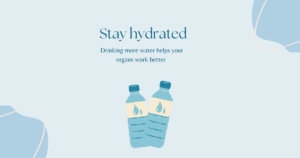
Water is often referred to as the elixir of life, and for good reason. Adequate hydration is essential for maintaining optimal health and well-being. Our bodies depend on water for numerous vital functions, from regulating body temperature to supporting digestion and nutrient absorption. In this article, we will explore the power of water and delve into why hydration is key for overall health. We will also address the common question of how much water you should drink per day, providing practical guidelines to help you stay adequately hydrated.
1. The Importance of Hydration:
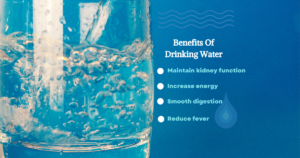
Water plays a critical role in our bodies, serving as a building block for cells, tissues, and organs. It helps transport nutrients, flushes out waste products, lubricates joints, and cushions vital organs. Proper hydration also aids in regulating body temperature and supports healthy cognitive function. By staying hydrated, you can optimise your body’s performance and maintain overall well-being.
2. Signs of Dehydration:
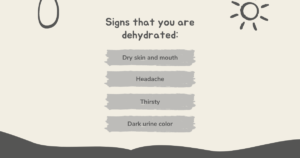
Recognizing the signs of dehydration is crucial for addressing your body’s fluid needs. Common symptoms of mild dehydration include thirst, dry mouth, fatigue, headache, and dark-colored urine. In more severe cases, dehydration can lead to dizziness, confusion, rapid heartbeat, and even fainting. Pay attention to these cues and take action to replenish your body with water.
3. Factors Influencing Hydration Needs:
Have you ever wondered why staying hydrated is crucial for maintaining overall health and well-being? As it turns out, the amount of water our bodies require can vary significantly depending on various factors. Lets explore the factors that affect our body’s water requirements.
- Physical Activity:
One of the most significant factors influencing hydration needs is physical activity. During workouts, your body loses water through sweat as you exert yourself. Engaging in intense exercise, such as running, cycling, or weightlifting, increases the amount of water you need. Remember to hydrate before, during, and after physical activity to quench your body’s thirst and prevent dehydration.
- Climate and Environment:
The climate and environment in which we live and spend our time play a vital role in determining our hydration needs. Hot and humid conditions cause more profuse sweating, leading to faster water loss. Conversely, cold and dry environments can deplete moisture from our bodies without us even realizing it. It’s important to adjust our water intake accordingly, adapting to the unique challenges posed by different climates to maintain our fluid balance.
- Age:
Age is another crucial factor that influences our hydration requirements. Infants and young children have a higher proportion of body water, making them more susceptible to dehydration. Older adults, on the other hand, may have a reduced sensation of thirst, making it easier to overlook the need for hydration. Regardless of age, it is essential for everyone to be mindful of their water intake and ensure adequate hydration.
- Health Conditions:
Certain health conditions can impact our hydration needs. Illnesses accompanied by fever, vomiting, or diarrhea can rapidly deplete our body’s water stores, requiring increased fluid intake to restore balance. People with conditions like diabetes or kidney disease may have specific hydration recommendations tailored to their individual needs. If you have a medical condition, consulting with a healthcare professional can provide you with personalized guidance on hydration.
- Pregnancy and Breastfeeding:
During pregnancy and breastfeeding, a woman’s body undergoes remarkable changes that can affect hydration needs. Increased blood volume and hormonal fluctuations lead to higher water requirements to support maternal and fetal health. Additionally, breastfeeding mothers need to replenish the fluids they lose through milk production. It’s important for expecting and new mothers to prioritize hydration to ensure both their and their baby’s well-being.
- Medications and Diuretics:
Certain medications and diuretics can influence our body’s water balance. Diuretics, often prescribed to manage conditions like high blood pressure, can increase urine production, potentially leading to dehydration. If you are taking medications, it is advisable to consult your healthcare provider regarding any specific hydration considerations.
4. How Much Water Should You Drink Per Day?
While the “8×8 rule” (eight 8-ounce glasses per day) is a common guideline, individual water needs can vary. A more personalized approach is to follow the recommendation of drinking enough water to satisfy your thirst and maintaining pale yellow urine as an indicator of proper hydration. Additionally, considering the Institute of Medicine’s general guideline, men are advised to consume about 3.7 litres (about 13 cups) of total water per day, while women should aim for 2.7 litres (about 9 cups) of total water intake.
5. Sources of Hydration:
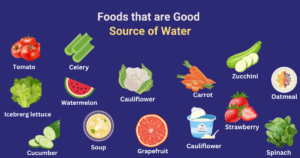
Remember that water isn’t the only source of hydration. Other beverages, such as herbal teas, infused water, milk, and natural fruit juices, contribute to your overall fluid intake. Fruits and vegetables with high water content, like watermelon, cucumbers, and oranges, can also provide hydration. However, it’s important to be mindful of added sugars and caffeine content in certain beverages, as excessive consumption can have adverse effects on health.
6. Tips for Staying Hydrated:
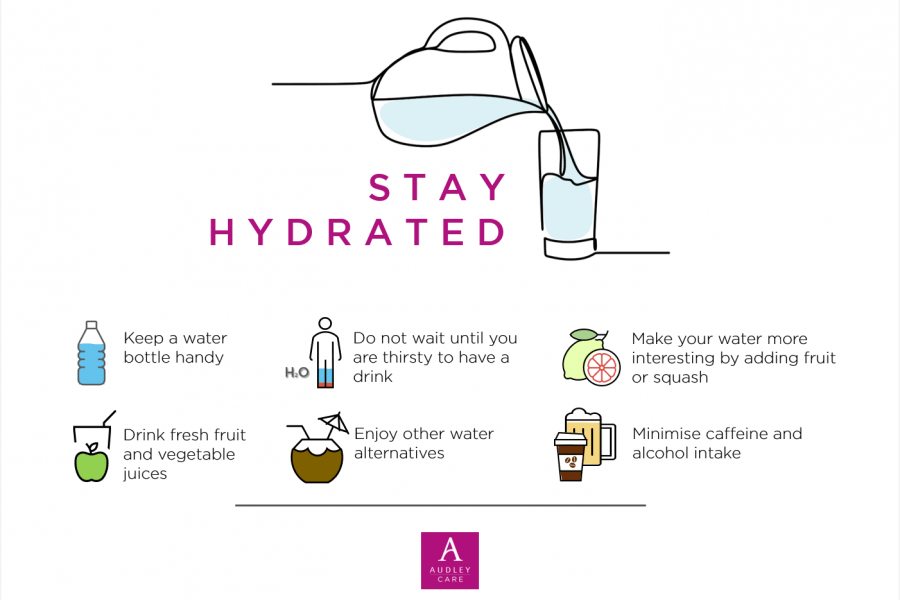
Maintaining hydration throughout the day can be easier with a few simple strategies.
- Carry a reusable water bottle with you to encourage regular sips.
- Set reminders or establish a routine to ensure consistent water intake.
- Infuse your water with refreshing flavors like lemon or mint to make it more enticing.
- Additionally, incorporating hydrating foods into your meals and snacks can further support your hydration goals.
7. Hydration and Exercise:
Physical activity increases fluid loss through sweat, making hydration during exercise crucial. Before, during, and after workouts, aim to drink water to maintain hydration levels. For intense or prolonged exercise, sports drinks or electrolyte-rich beverages may be beneficial to replenish lost electrolytes and provide energy.
Conclusion:
Water is an essential component of a healthy lifestyle, and proper hydration is vital for overall health and well-being. By understanding the importance of hydration, recognising signs of dehydration, and following general guidelines for daily water intake, you can ensure that your body receives the hydration it needs. Remember to adjust your fluid intake based on individual factors and engage in habits that support consistent hydration. By harnessing the power of water and making it a priority in your daily routine, you can optimise your health, enhance your physical performance, and promote overall well-being. Stay hydrated and embrace the transformative benefits that come with this simple yet powerful act.

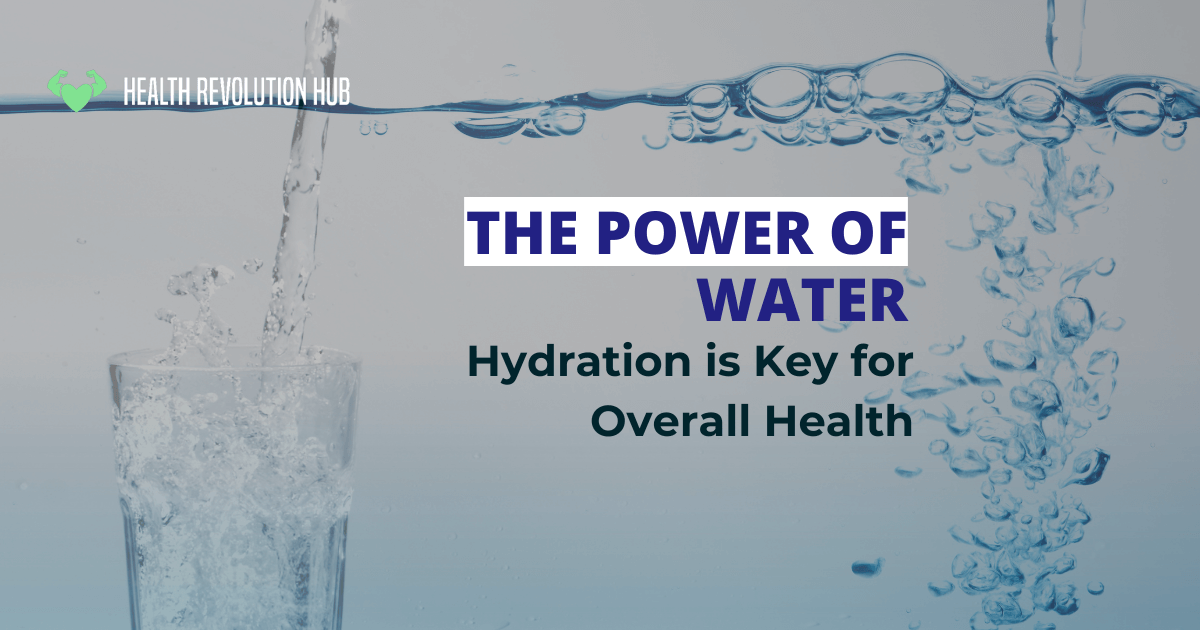







[…] You can also read The Power of Water: Why Hydration is Key for Overall Health and How Much Water You Should Drink Per … […]
[…] have one additional tip for you, You can also read The Power of Water for a deeper understanding of […]
[…] Staying hydrated helps maintain your skin’s moisture balance, encouraging a healthy and radiant complexion. Aim to drink an adequate amount of water throughout the day. […]
[…] Related topics The Power of Water […]